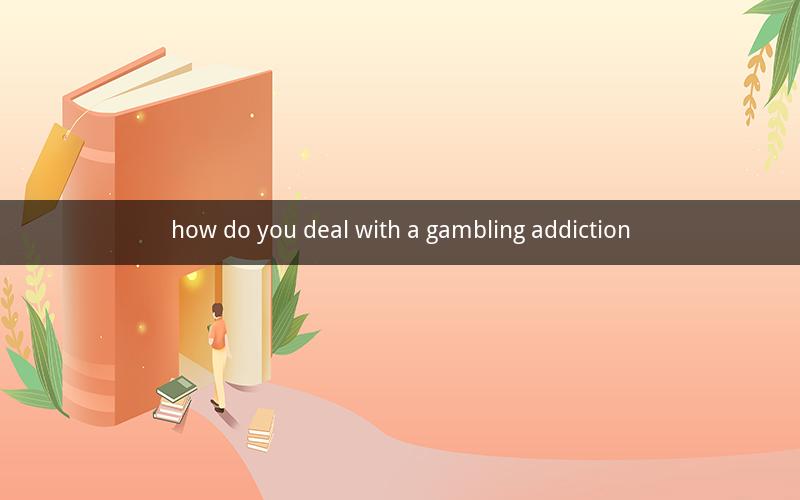
Table of Contents
1. Understanding Gambling Addiction
2. Recognizing the Signs of a Problem
3. The Impact of Gambling Addiction on Individuals and Families
4. Strategies for Dealing with a Gambling Addiction
- Seeking Professional Help
- Building a Support System
- Developing Healthy Coping Mechanisms
- Financial Management
5. Treatment Options for Gambling Addiction
- Inpatient and Outpatient Programs
- Therapy and Counseling
- Self-Help Groups
6. Prevention and Education
7. Resources for Support and Information
1. Understanding Gambling Addiction
Gambling addiction, also known as compulsive gambling or pathological gambling, is a disorder characterized by an inability to control or stop gambling despite negative consequences. It is a complex condition that can affect individuals of all ages, backgrounds, and socioeconomic statuses. Understanding the nature of gambling addiction is crucial for developing effective strategies to deal with it.
2. Recognizing the Signs of a Problem
Identifying the signs of a gambling addiction is the first step in addressing the issue. Common signs include:
- Preoccupation with gambling thoughts
- Inability to control gambling behavior
- Lying to family and friends about gambling activities
- Borrowing money to fund gambling
- Neglecting responsibilities due to gambling
- Engaging in illegal activities to fund gambling
3. The Impact of Gambling Addiction on Individuals and Families
Gambling addiction can have severe consequences for individuals and their families. Some of the impacts include:
- Financial problems
- Relationship issues
- Legal problems
- Mental health issues, such as depression and anxiety
- Health problems, such as stress-related disorders
4. Strategies for Dealing with a Gambling Addiction
Dealing with a gambling addiction requires a multifaceted approach. Here are some strategies that can be effective:
Seeking Professional Help
- Consult with a mental health professional
- Attend therapy sessions
- Consider medication, if recommended by a healthcare provider
Building a Support System
- Reach out to friends and family for support
- Join a support group for individuals with gambling addiction
- Attend Gamblers Anonymous meetings
Developing Healthy Coping Mechanisms
- Engage in activities that provide a sense of fulfillment and joy
- Practice stress-reduction techniques, such as meditation and exercise
- Focus on building a strong support network
Financial Management
- Seek financial counseling to address gambling-related debt
- Develop a budget and stick to it
- Explore debt consolidation options, if necessary
5. Treatment Options for Gambling Addiction
Several treatment options are available for individuals struggling with gambling addiction:
Inpatient and Outpatient Programs
- Inpatient programs provide a structured environment for individuals to focus on their recovery
- Outpatient programs offer flexibility and support for individuals who need to maintain their daily responsibilities
Therapy and Counseling
- Cognitive-behavioral therapy (CBT) can help individuals identify and change negative thought patterns
- Dialectical behavior therapy (DBT) can help individuals develop skills to manage emotions and stress
- Family therapy can help address the impact of gambling addiction on relationships
Self-Help Groups
- Gamblers Anonymous (GA) provides a peer-support group for individuals struggling with gambling addiction
- Other self-help groups, such as SMART Recovery, offer additional support and resources
6. Prevention and Education
Preventing gambling addiction begins with education and awareness. Some prevention strategies include:
- Educating individuals about the risks of gambling
- Promoting responsible gambling practices
- Encouraging individuals to seek help if they suspect they may have a problem
7. Resources for Support and Information
Several resources are available for individuals struggling with gambling addiction and their families:
- National Council on Problem Gambling (NCPG)
- Gamblers Anonymous (GA)
- SMART Recovery
- Financial Counseling Services
10 Questions and Answers
Question 1: What is the difference between problem gambling and gambling addiction?
Answer: Problem gambling refers to any gambling behavior that causes distress or harm, while gambling addiction is a severe form of problem gambling characterized by an inability to control gambling behavior.
Question 2: Can someone with a gambling addiction recover?
Answer: Yes, recovery from gambling addiction is possible. Many individuals have successfully overcome their addiction with the right support and treatment.
Question 3: How can I help a loved one who has a gambling addiction?
Answer: Offer support, encourage them to seek professional help, and be patient. It is important to understand that recovery is a process, and progress may be slow.
Question 4: Are there any medications available to treat gambling addiction?
Answer: Yes, some medications, such as naltrexone and topiramate, may be prescribed to help reduce cravings and prevent relapse.
Question 5: Can gambling addiction be treated without professional help?
Answer: While some individuals may benefit from self-help strategies, professional help is often necessary to address the underlying issues and provide comprehensive support.
Question 6: How can I prevent gambling addiction in my child?
Answer: Educate your child about the risks of gambling, promote healthy coping mechanisms, and be aware of signs of potential gambling problems.
Question 7: Can gambling addiction lead to financial ruin?
Answer: Yes, gambling addiction can lead to significant financial problems, including debt, bankruptcy, and foreclosure.
Question 8: Are there any long-term effects of gambling addiction?
Answer: Yes, gambling addiction can have long-term effects on an individual's mental, emotional, and financial well-being, as well as their relationships and overall quality of life.
Question 9: Can I still enjoy gambling if I have a gambling addiction?
Answer: It is important to recognize that gambling addiction is a serious condition that requires attention. If you have a gambling addiction, it is best to avoid gambling altogether or seek professional help to manage your addiction.
Question 10: How can I find a support group for individuals with gambling addiction?
Answer: You can find support groups by contacting local mental health organizations, visiting Gamblers Anonymous websites, or searching online for resources in your area.